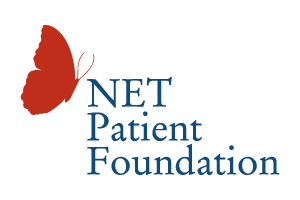The NET Patient Foundation continues to be the only charity in the UK & Ireland that offers information and advice to those affected by neuroendocrine tumours.
What are NETs?
Neuroendocrine Tumours (NETs) are relatively uncommon, usually slow growing cancers. You may hear them referred to as GEP NETs, because they often arise in the cells of the stomach (gastro), intestines (entero) and the pancreas (pancreatic). There are a number of different types of NET.
These are examples of the more common NETs:
- GI (gastrointestinal) NETs (used to be called ‘carcinoid’)
- Non-Functioning Pancreatic Tumours
- Multiple Endocrine Neoplasias
- Gastrinomas
- Insulinomas
- Glucagonomas
- Phaeochromocytomas
- VIPomas
- Goblet Cell Carcinoids
Between 3-5 people per 100,000 are diagnosed with new cases of NETs each year in the UK. However because NETs can grow slowly and in some people produce such minor symptoms, doctors believe that there are probably thousands of people living their lives with NETs, but unaware.
It is quite common for NETs to be found incidentally during tests or treatments for other conditions, such as irritable bowel syndrome, Crohn’s disease, peptic ulcer disease, gastritis or gallstones.
Symptoms of NET cancers can be vague, and might include diarrhoea, flushing, wheezing, abdominal pain and fatigue.
Most NETs occur as the primary site (the original site of the tumour) in the digestive system, but they can arise in other parts of the body such as the lungs and the pancreas.
For more information about NET cancers, please visit www.netpatientfoundation.org <http://www.netpatientfoundation.org>
The World NET Community
There are a number of patient organisations around the world dedicated to providing support and information to people affected by NET cancers. These organisations also support a wide range of research projects aimed at treating NET cancers.
To find out whether there is a patient group near you, please visit:
http://netcancerday.org/about/world-net-community-directory
